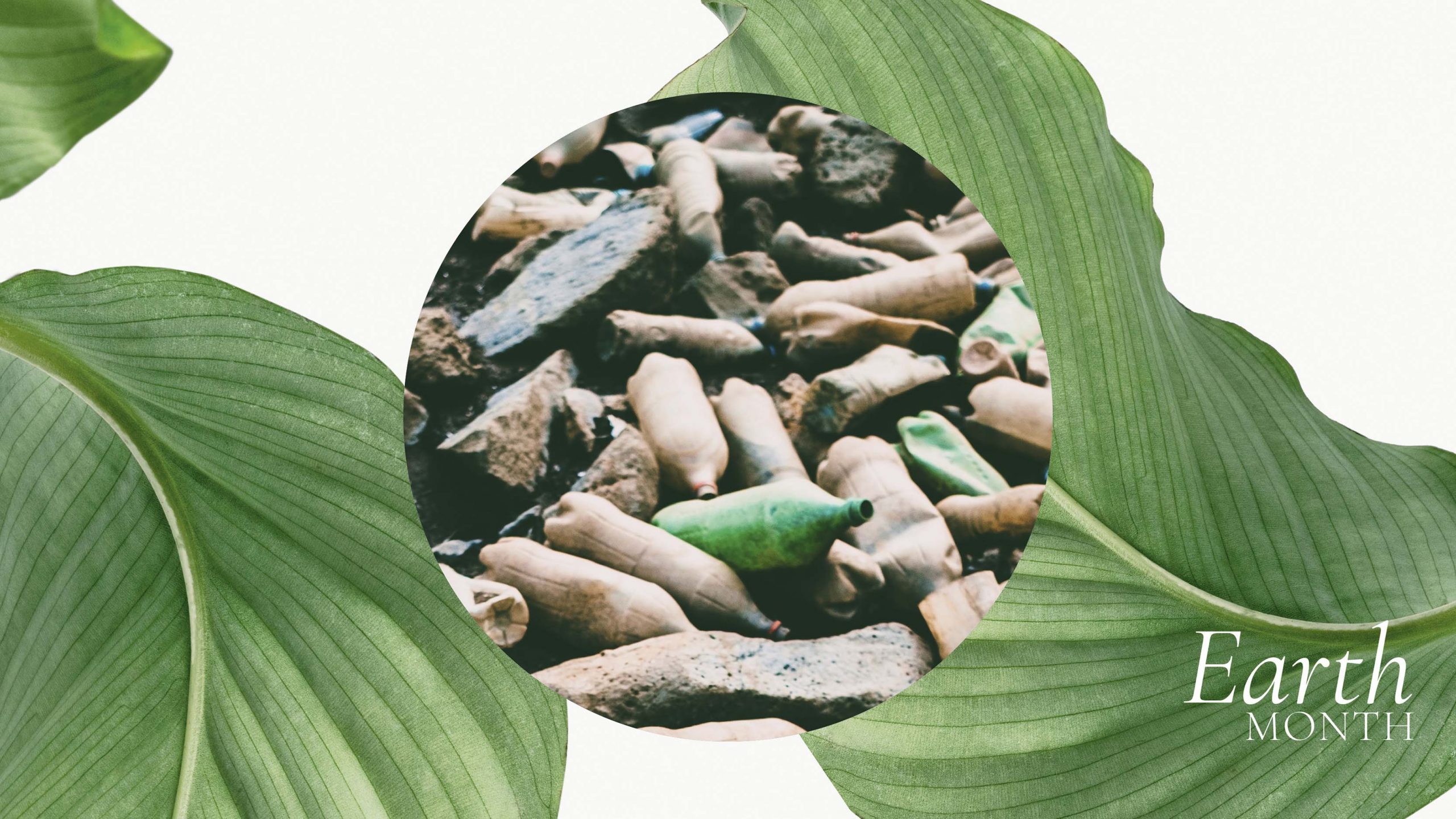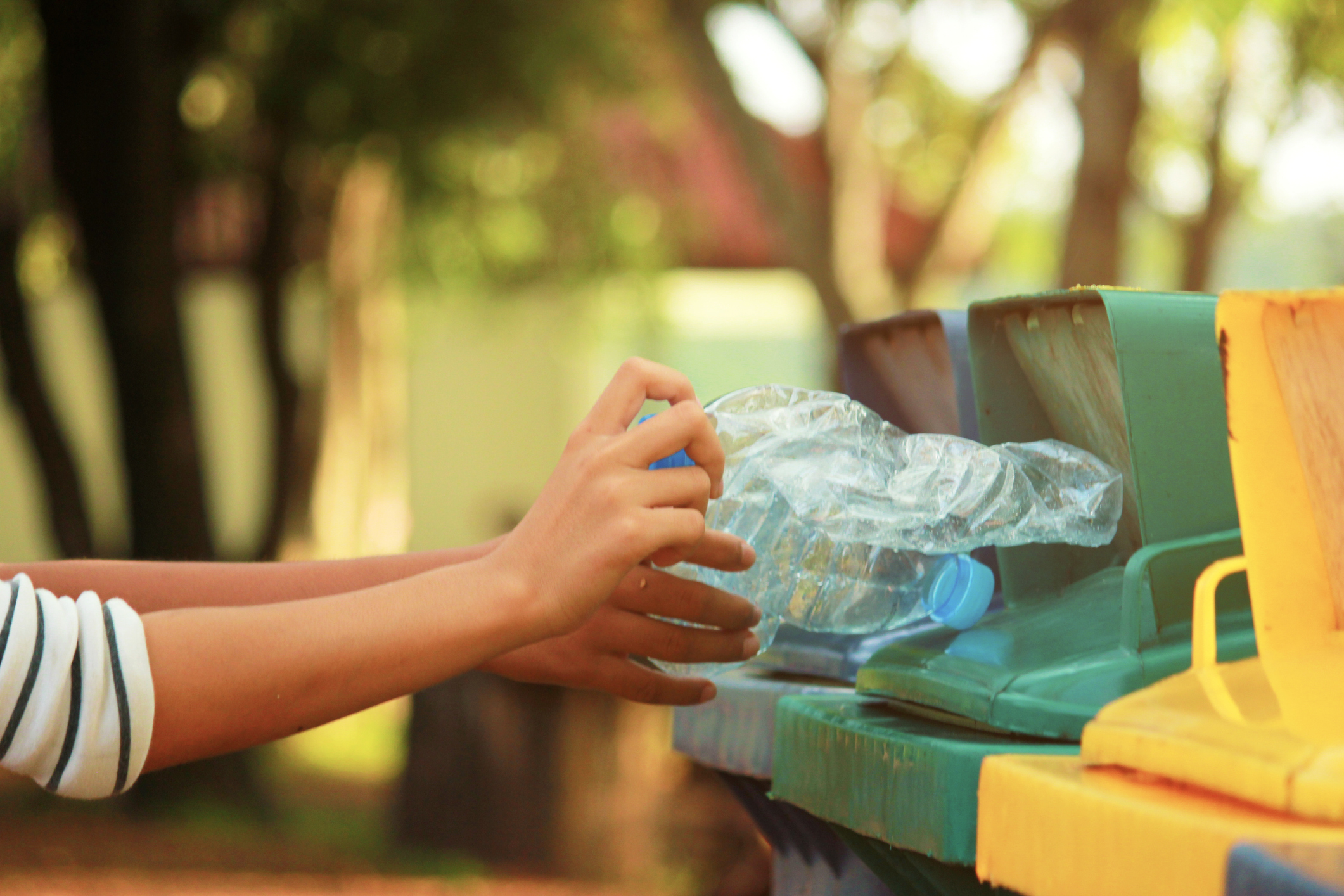
Celebrity news, beauty, fashion advice, and fascinating features, delivered straight to your inbox!
You are now subscribed
Your newsletter sign-up was successful
Did you know? Each year, recycling saves over 700 million tonnes in CO2 emissions.
Ever feel like your actions to build a better tomorrow are insignificant sometimes? You're not alone. There is so much change to implement, so is what you're doing worth the effort? Can one person really make a change? Short answer: every little helps.
That's why we've rounded up ten recycling facts that'll prove just how essential it is to keep doing your bit - whether that's recycling, buying ethical fashion, making your WFH office more green, opting for sustainable beauty, or reducing your food waste.
According to the Global Recycling Day website, every year, the Earth yields billions of tons of natural resources and at some point, in the not too distant future, it will run out. "That’s why we must think again about what we throw away – seeing not waste, but opportunity," they share.
If you're overwhelmed and not entirely sure where to start with living more sustainably, don't worry - click to read our expert-led guide with 40 tips on how you can make all areas of your life more eco-friendly.
So, why should I recycle?
Again, as per the Global Recycling Day website, because recycling is a key part of any circular economy, which means, ultimately, that it's key in protecting our natural resources.
"Each year the ‘Seventh Resource’ (recyclables) saves over 700 million tonnes in CO2 emissions and this is projected to increase to 1 billion tons by 2030," shares the website.
Bottom line: they share that there is 'no doubt' that making an effort to recycle is one of the ways you can do your bit 'to save the future of our planet and humanity'.
Celebrity news, beauty, fashion advice, and fascinating features, delivered straight to your inbox!

10 recycling facts that'll encourage you to recycle
1. Recycling is known as the 'Seventh Resource'
Aka, the earth's most important natural resources, that being water, air, oil, natural gas, coal and minerals, are the first six. You know these aren't infinite, and we're getting through them fast. Hence the seventh resource, aka recycling, being key to make sure we're using things not once, but time and time again.
2. Recycling does make a difference
Excuse the repetition, but as above, this fact is amazing. "Each year, recyclables save over 700 million tonnes in CO2 emissions. This is projected to increase to 1 billion tons by 2030," shares the Global Recycling Day website.
3. Recycling offsets CO2 emissions
Their site also shares that recycling offsets all CO2 emissions generated by the aviation industry annually. Think about that for a second.
4. Recycling boosts employment rates
Did you know? Operating recycling plants actually helps to boost employment rates globally. The GRD website shares that recycling employs approximately 1.6 million people worldwide. Not bad.
5. Recycling is good for the economy, too
Some more fun recycling facts for you: annually, what the recycling industry contributes to the global GDP is projected to exceed $400 billion in the next 10 years. That's a lot.
6. Recycling is not just about profit
The recycling industry is constantly reinvesting profits to make sure that the way they work is as sustainable as possible. "$20 million dollars is invested each year by the recycling industry into job creation, improving recycling efficiency and environmental impact," shares the GRD website.
7. Recycling conserves the six key primary resources
One of recycling's key aims is to help conserve the six key primary resources mentioned above. And it's doing just that, with a Bureau of International Recycling study concluding that recycled materials, at current, supplying 40% of the world’s raw material needs.
8. Recycling saves water
Did you know? Using recycled paper saves water, as well as trees. 900,000,000 trees every year are cut down to make paper, and 7,000 gallons of water are used per ton of paper produced. Do your bit - buy recycled.
9. Recycled cans make a big difference
Everyone loves a can of Diet Coke here and there, especially in the warmer summer month. But it's also key to make sure you're buying cans made from recycled materials, where possible. It takes the same amount of energy to make one can from raw materials as it does to recycle a whipping 20 cans.
10. As does recycled cardboard
Last but by no means least, make sure you're recycling your cardboard, where possible. Similar to cans, there's a vast difference in the energy used to make new cardboard vs recycle it - recycling cardboard uses 75% of the energy required to make new cardboard.

Ally is Marie Claire UK's Senior Health and Sustainability Editor, a well-regarded wellness expert, ten-time marathoner, and Boston Qualifying runner.
Utilising her impressive skillset and exceptional quality of writing, she pens investigative, review and first-person pieces that consistently demonstrate flair and originality.
As well as writing, Ally manages a team of freelancers, oversees all commissioning and strategy for her pillars, and spearheads the brand's annual Women in Sport covers, interviewing and shooting the likes of Mary Earps, Millie Bright, and Ilona Maher. Shortlisted for three BSMEs and winning one in 2022, Ally lives and breathes her verticals: her eye for a story and connections within the wellness sphere are unrivalled. Follow Ally on Instagram for more.
